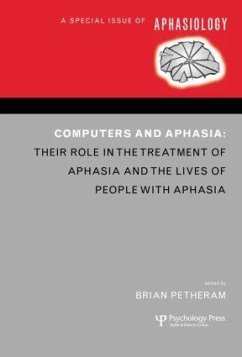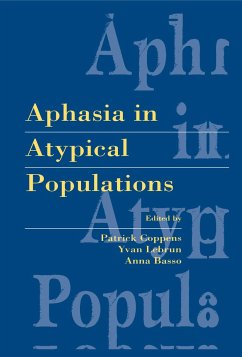
Clinical Perspectives on Primary Progressive Aphasia
Versandkostenfrei!
Versandfertig in 1-2 Wochen
165,99 €
inkl. MwSt.
Weitere Ausgaben:

PAYBACK Punkte
83 °P sammeln!
Primary progressive aphasia is a type of dementia that progressively impairs language abilities and may eventually affect other aspects of thinking, movement and/or personality. For the person with primary progressive aphasia, these problems have a profound effect on their ability to communicate, which in turn impacts their relationships, social networks and ability to participate in everyday activities that depend on communication. This book provides an up-to-date survey of research relevant to the clinical care of people with primary progressive aphasia. It was originally published as a spec...
Primary progressive aphasia is a type of dementia that progressively impairs language abilities and may eventually affect other aspects of thinking, movement and/or personality. For the person with primary progressive aphasia, these problems have a profound effect on their ability to communicate, which in turn impacts their relationships, social networks and ability to participate in everyday activities that depend on communication. This book provides an up-to-date survey of research relevant to the clinical care of people with primary progressive aphasia. It was originally published as a special issue of the journal Aphasiology.














